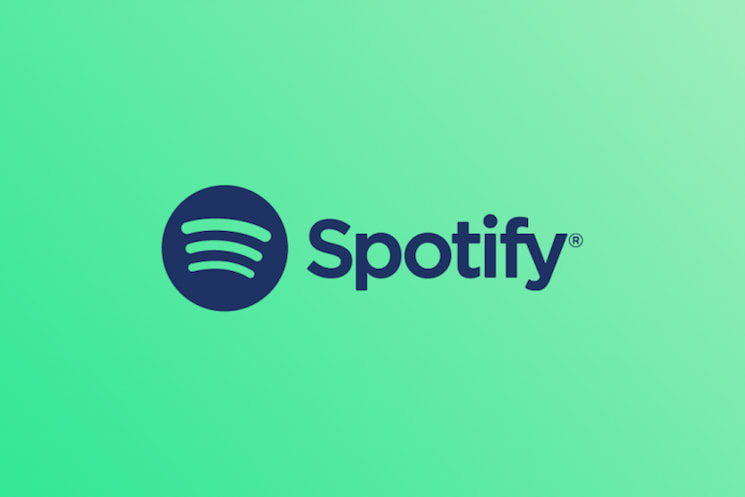Spotify has officially unveiled the details for all upcoming changes to its royalties policy. The policy, which was previously announced to demonetize any tracks with less than 1,000 streams, was met largely with disdain.
"Brutal. As if they aren't already leeching off musicians," one X commenter (formerly Tweeter) responded to Exclaim!'s post announcing the news.
"Excited to continue making zero dollars from music!" quipped another.
In its latest breakdown of the money trail, Spotify remains insistent that relocating funds from low-streamed songs and funnelling them elsewhere will ultimately be beneficial. A blog post shared by the company today notes that tracks streamed less than 1,000 times — of which there are tens of millions — only generate $0.03 per month, and, oftentimes, banking and distribution practices make it impossible for the artist to receive that money anyway.
Given the amount of songs on the platform with less than 1,000 streams, Spotify claims there is over $40 million worth of unpaid royalties lying dormant. So, to make that money more useful for "artists who are most dependent on streaming revenue," the company is going ahead with its plan to demonetize low-streamed tracks in "early 2024."
An excerpt from the blog post reads:
99.5% of all streams are of tracks that have at least 1,000 annual streams, and each of those tracks will earn more under this policy.
We also believe the policy will eliminate one strategy used to attempt to game the system or hide artificial streaming, as uploaders will no longer be able to generate pennies from an extremely high volume of tracks.
The new policy also outlines a strategy to combat creators rigging the system by cutting white noise tracks short and looping them in a playlist so they can benefit from additional streams:
Starting next year, we'll increase the minimum track length of functional noise recordings to two minutes, in order to be eligible to generate royalties. Functional genres will include white noise, nature sounds, machine noises, sound effects, non-spoken ASMR, and silence recordings.
Additionally, over the coming months, we'll work with licensors to value noise streams at a fraction of the value of music streams.
To read Spotify's entire blog regarding their new streaming royalties policy, check out the Spotify for Artists website.
"Brutal. As if they aren't already leeching off musicians," one X commenter (formerly Tweeter) responded to Exclaim!'s post announcing the news.
"Excited to continue making zero dollars from music!" quipped another.
In its latest breakdown of the money trail, Spotify remains insistent that relocating funds from low-streamed songs and funnelling them elsewhere will ultimately be beneficial. A blog post shared by the company today notes that tracks streamed less than 1,000 times — of which there are tens of millions — only generate $0.03 per month, and, oftentimes, banking and distribution practices make it impossible for the artist to receive that money anyway.
Given the amount of songs on the platform with less than 1,000 streams, Spotify claims there is over $40 million worth of unpaid royalties lying dormant. So, to make that money more useful for "artists who are most dependent on streaming revenue," the company is going ahead with its plan to demonetize low-streamed tracks in "early 2024."
An excerpt from the blog post reads:
99.5% of all streams are of tracks that have at least 1,000 annual streams, and each of those tracks will earn more under this policy.
We also believe the policy will eliminate one strategy used to attempt to game the system or hide artificial streaming, as uploaders will no longer be able to generate pennies from an extremely high volume of tracks.
The new policy also outlines a strategy to combat creators rigging the system by cutting white noise tracks short and looping them in a playlist so they can benefit from additional streams:
Starting next year, we'll increase the minimum track length of functional noise recordings to two minutes, in order to be eligible to generate royalties. Functional genres will include white noise, nature sounds, machine noises, sound effects, non-spoken ASMR, and silence recordings.
Additionally, over the coming months, we'll work with licensors to value noise streams at a fraction of the value of music streams.
To read Spotify's entire blog regarding their new streaming royalties policy, check out the Spotify for Artists website.
